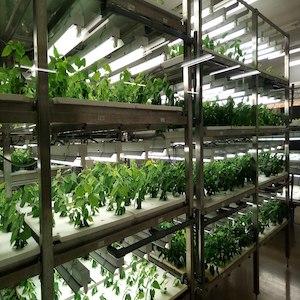The Missing Kingdom: Why Fungi Must Be Central to Conservation Strategy
28 December 2025
Published online 30 September 2024
Study measures value of machine learning for sustainable food growth.

As global populations soar and urban areas expand, food production systems are under unprecedented strain, requiring innovative solutions. A study led by Benjamin Decardi-Nelson, at Cornell University, explores the potential of AI in plant factories with artificial lighting (PFALs). These are systems where plants are grown indoors using artificial light in an enclosed, factory-like environment.
The research, published in Nature Food, used computational modeling and AI to optimize resource use in PFALs, focusing on key environmental factors like temperature, humidity, and carbon dioxide (CO2). Through deep reinforcement learning, the AI-driven system efficiently managed carbon dioxide levels, lighting, and heating, ventilation, and air conditioning or HVAC systems without relying on extensive plant physiology data. The study evaluated these systems in ten cities with diverse climates—from Miami's warmth, to Reykjavik's cold, and Dubai's heat—using lettuce cultivation as a case study.
The results show that the AI system could reduce energy consumption by at least 23.6% while maintaining ideal conditions for plant growth, balancing CO2 during light periods and providing fresh air for respiration during dark periods. This demonstrates how AI can conserve resources while maintaining optimal conditions for photosynthesis, respiration, and transpiration.
“This research highlight was partially generated using artificial intelligence and edited by a staff member of Nature Middle East.”
doi:10.1038/nmiddleeast.2024.305
Stay connected: